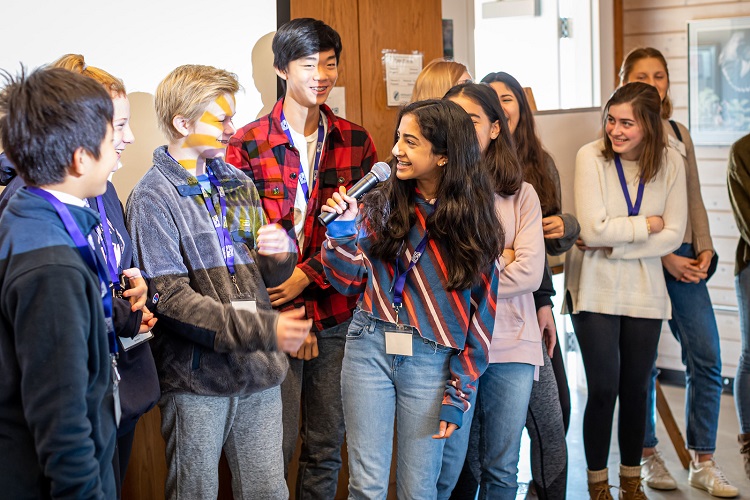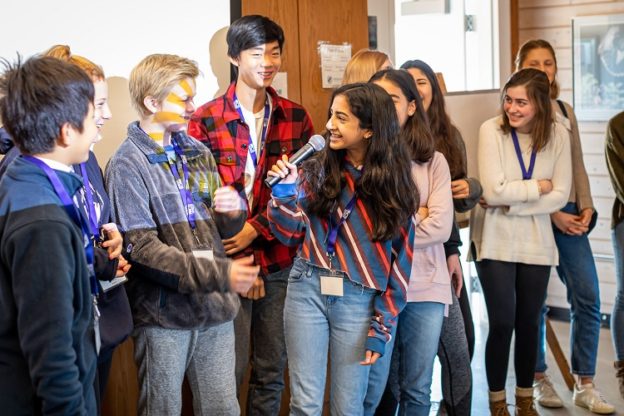Our words hold immense power.
We all learn this pretty early on. Think of your first favorite book or movie that whisked you off into a wonderful, magical world and how that made you feel. Think about the last time you sat down with a loved one to vent your frustrations or rejoice in good news, and how your stories connected the both of you through a sense of trust and understanding.
Storytelling is part of that critical foundation that forms our social bonds but also our larger culture itself; our stories are tools that allow us to reach a place of empathy in those we care about.

That’s why storytelling is indispensable in our collective climate fight
When dealing with something that can seem as amorphous, but also as frightening, as climate change, our words can bring the phenomenon down to a personal level. Weaving a tale about your first coastal flooding incident or when you noticed your allergies worsening along with rising temperatures imbues climate change with real feeling and real experiences. These stories allow us to visualize climate change in a much more tangible way. This isn’t just happening across the world – but here and now, to people we know and love, and to our neighbors around us.
Our stories also have the opportunity to give others hope when spirits are low. Through stories, we can connect climate action to successful solutions, community engagement, and innovation. We can demonstrate just how much all of us can do if we work together. Acting alone can be overwhelming and scary, but connecting with a community who understands your story can help you overcome these challenges.
Anyone can tell their climate story
If you want to try, just follow these simple steps:
- Start with what you care about
- Share your experience of what’s happening here and now
- Focus on solutions
You can also follow Mass Audubon’s guide on how to talk about climate change.
Most important: remember you are not alone

My name is Rishya, Mass Audubon’s Climate Change Communications Manager. I’m a Boston-based bird nerd, an ocean enthusiast, and a climate champion. I use stories to build a bridge between science and the human connection, telling tales of sea turtles and lobsters, but also of people and communities – all with the goal reaching that very same place of empathy. These stories help me connect people feeling lost about the climate crisis to real solutions they can engage in, so that we form a community that supports each other and acts together.
Our “Meet a Climate Champion” series will feature everyday people, like you and me, invested in solving the climate crisis. Our champions will tell their stories, taking you through their journey of why they care, what they’re doing to act, and what brings them hope.
Talking about climate change, telling our personal stories, is one of the best ways to reach peoples’ hearts and inspire climate action in our communities.
If you’re looking for ways to stay connected with Mass Audubon’s climate action work in the meantime, sign up for our newsletter, Climate Connection, for climate information, community action, and solutions. You can also nominate your local climate champion by commenting below or sending us an email at [email protected].
— Rishya Narayanan



Conversation and communication – two things that show you care!! Nice!